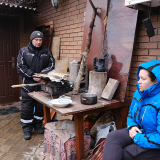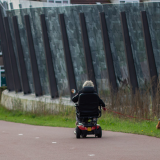
Gyvenimo sąlygos ir gyvenimo kokybė
Gyvenimo sąlygos ir gyvenimo kokybė yra viena iš šešių pagrindinių EUROFOUND 2021–2024 m. darbo programos veiklos rūšių. EUROFOUND toliau planuos ir analizuos pagrindinius aspektus, susijusius su žmonių gyvenimo sąlygų gerinimu Europoje, įskaitant informaciją apie jų gyvenimo kokybės ir visuomenės suvokimą. Kadangi COVID-19 pandemija ir po to kilusi ekonomikos krizė turėjo didelės įtakos žmonių gyvenimui, EUROFOUND toliau tirs šios krizės poveikį ES piliečiams skirtingais gyvenimo etapais.
2021–2024 m. EUROFOUND tyrimas suteiks svarbių įžvalgų apie uždavinius ir perspektyvas gyvenimo sąlygų ir gyvenimo kokybės srityje ES, taip pat apie įvairių iniciatyvų, skirtų palengvinti įvairių piliečių grupių socialinius sunkumus, reikšmę. Daugiausia dėmesio skiriama poveikiui vyresniems žmonėms ir priežiūros poreikiams, jaunimui ir jų socialinei įtraukčiai ir socialiniam judumui, taip pat skirtingoms krizės pasekmėms vyrams ir moterims .
Visoje ES teikiamos viešosios paslaugos atliko svarbią funkciją sprendžiant COVID-19 krizę, bet kartu joms kilo ir didelių sunkumų, ir jos bus vertinamos išsamiau, daugiausia dėmesio skiriant tokiems klausimams, kaip kokybė, pasiekiamumas ir prieinamumas. Kaip parodė ankstesnės išvados, krizė turėjo neproporcingą poveikį tam tikroms grupėms pagal amžių, priežiūros pareigas ir profesinio ir asmeninio gyvenimo pusiausvyrą , o EUROFOUND tai toliau analizuos.
Bendradarbiaudamas su Europos lyčių lygybės institutu (EIGE), EUROFOUND ketina ištirti daugialypę lyčių nelygybę, tirdamas COVID-19 krizės poveikį vyrams ir moterims dalyvavimo darbe, materialinių gyvenimo sąlygų ir gerovės prasme, siekiant nustatyti skirtumus ir įvertinti šios krizės poveikį lyčių nelygybei.
- Infografikas: Gyvenimo sąlygos ir kokybė ES


















